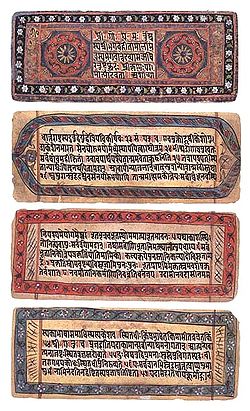Words and language are one of the most powerful tools man has ever created. When used properly, they can bring people together. They can unite and inspire whole communities to do great things. They can help us spread world changing ideas from one people to the next, and from one generation to the next.
They can also be used to do great harm. They can be used to control or mislead people. They can be used to create barriers designed to divide people into different classes based on nothing more than how those people speak.
Some people do this by creating our own languages, rich with secret words and meanings that only those indoctrinated can decipher. They can create a velvet rope that keeps those uninitiated in their secret meaning out.
It is why it is so important that we constantly explain important words and the ideas they stand for so that they are open to everyone throughout the ages. Only then can we be sure that everyone benefits from the ideas those words represent. You see, ideas are power, and great ideas should be used to empower everyone, not to laud power over them.
In some ways, dharma is such a word. It holds the key to a very powerful idea that anyone can use to gain happiness and so much more. But to those uninitiated, it can pose a mystical barrier to their personal growth. Which is why it needs to come out of the shrouded mystery of language so that anyone can bask in the idea behind it.
Today, dharma has many meanings to many people. To some it refers to someone’s life-path, or their lifestyle. To others it has a karmic overtone that implies doing the right thing. To others still, it refers to the truth - or the true path for someone to stay on.
I refer to it as the Simple Truth. And yes, while there are some simple truths that everyone abides by [thou shalt not kill], one's dharma is different for everyone. It is, in effect, the essence of your being that you need to be true to if you want to be happy and live the life you love.
 This is how Krishna referred to dharma in the Bhagavad Gita. In this ancient text, Krishna tells a warrior, "better your own dharma badly performed than the dharma of another done perfectly."
This is how Krishna referred to dharma in the Bhagavad Gita. In this ancient text, Krishna tells a warrior, "better your own dharma badly performed than the dharma of another done perfectly." What he is basically telling this warrior that it is better to follow your true calling even if it means killing others during battle, than to try and be something you are not. It is better to be true to yourself and do wrong, than to be untrue to your own nature and do right.
Now, I do not think Krishna, nor anyone, thinks that killing is okay. Nor do I think that anyone is promoting the idea of living anything other than a compassionate life. But I do think that this is still wonderful advice to those who want to be happy and life a life they will truly love.
To be clear, the idea of being true to oneself is not just a Buddhist one. It has been echoed throughout the years by great minds the world over. Shakespeare wrote it into Hamlet when Polonius said, "This above all. To thine own self be true."
Richard Bach said it when he wrote, "Your only obligation in any lifetime is to be true to yourself."
So whether you refer to it as dharma, or being true to yourself, or finding and following your own Simple Truth, remember that the important part is not the words, but the idea behind the words.
So find your dharma, find your own true self, find your own Simple Truth. Just make sure you share that knowledge in whatever language others are comfortable hearing it in. For that is what will make you happy, and will enable you, and everyone, to live the life each loves.
simple truth
